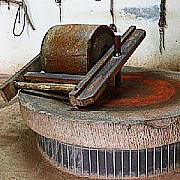Taijikid wrote:Here's an article which explains the differences between jin and li. The article also touches on tingjin and dongjin.
However, its in Chinese, but I think its worth the effort to try to find someone to translate it for you.
http://blog.sina.com.cn/s/blog_500f68f60100cr9j.html
Li is strength/force. Jin is trained strength/force. It's like the eskimos have (supposedly) 20 words for different kinds of snow. Unless you live in the environment enough to differentiate snow - it doesn't make sense. (Because it is experiential - you can't describe the color 'white').
There is 'force' (li) and then there are (the different jins of 'force') - 'gravity', centrifugal force, centripetal force, 'tremors', vibration, pulsing etc. all different (descriptive) words for the same idea of 'force'. And then there is jargon where in the context of a technique one word means a slightly different way in a style than it does in another style or ordinary conversation.








